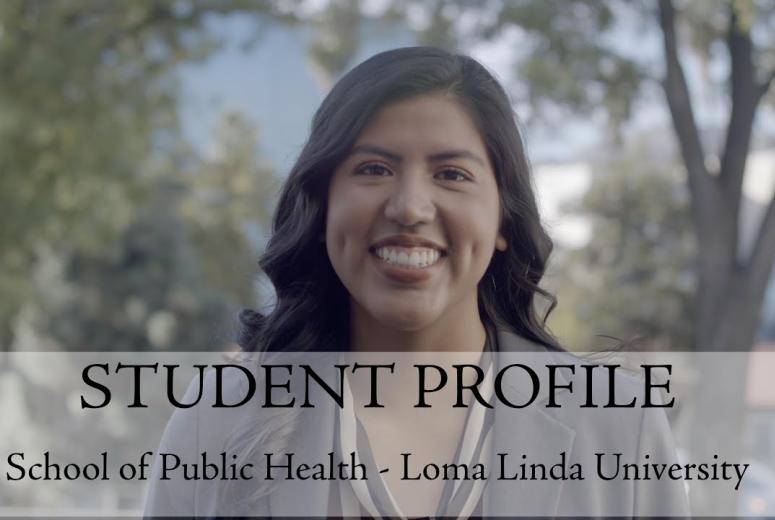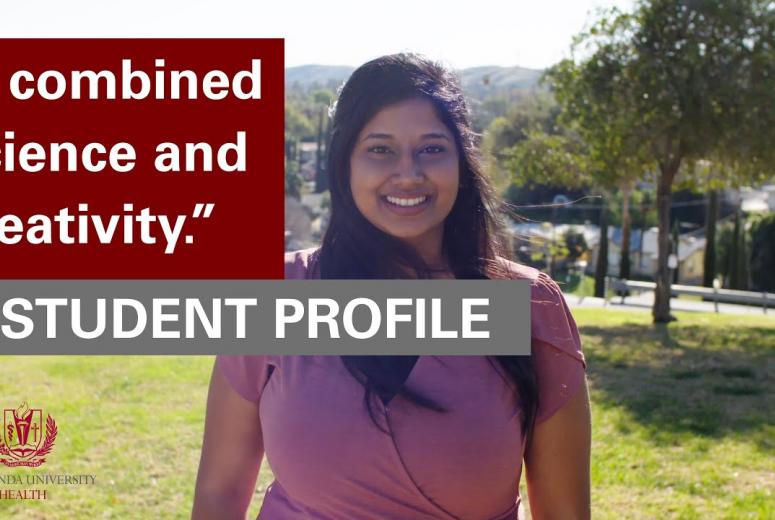Empowering Leaders for Global Health Impact
offered on-campus only
The Global Health program prepares committed professionals who are both technically competent and cross-culturally skilled in creating and facilitating sustainable health and development programs in diverse settings and populations. Utilizing an experiential, evidence-based model of learning while building on the global health competencies defined in the model developed by the Association of Schools and Programs of Public Health in 2011, the program enables graduates to contribute to a better quality of life for all people—especially those who are vulnerable, marginalized and disadvantaged. The program’s extensive network of global and local faculty and organizational resources affords a broad spectrum of options for students to learn and practice the “art and science” of this exciting discipline.
Practicum
Students in this program will complete a 400-hour mentored experience in global health designed to develop comprehensive public health expertise. Students begin by learning foundational concepts and exploring broad areas of public health in their first year, then apply these concepts through community partnerships. The program involves consultation with a faculty advisor to identify specific competency areas of interest. A key component is a hands-on practical field experience outside the U.S., which allows students to work on a specific project and narrow down their global health focus. By completing this comprehensive journey, graduates emerge prepared as specialized public health experts with practical experience and targeted knowledge in their chosen global health domain.
Connect with Dr. Monita Baba-Djara, Program Director, at [email protected].
Career Outlook:
The program prepares career professionals who work in the nonprofit, relief, and development sectors. Graduates of the program may qualify for positions in:
- nongovernmental, faith-based, and community-based organizations;
- county, state, and national health departments
- private foundations
- public health enterprises
- public health practice organizations
Graduates also find positions in government and transnational organizations, such as the World Health Organization, UNICEF, the World Bank, Centers for Disease Control and Prevention (CDC); and national assistance organizations like the United States Agency for International Development (USAID). Further academic training is also available for graduates interested in teaching and research. Those with prior field experience and additional language/s proficiency (for example, French or Spanish) are generally given preference both during student admission and later, when applying for jobs.
Program Details
Program Learning Outcomes
By the end of the program, the graduate should be able to:
- Assess global burden of disease and health status of populations.
- Analyze the organization, structure, function, and equity of health systems in high, medium, and low-income countries.
- Address diversity of populations and individuals when formulating health programs and services.
- Develop collaborative partnerships with institutions, community and stakeholders to equitably improve the health of communities.
- Apply concepts and principles of cultural humility when leading and working in teams.
Global Health Major Courses
GLBH 517 | Cultural Issues in Health Care | 3 | |||
GLBH 564 | Fundamentals of Global Health and Development I | 2 | |||
GLBH 566 | Fundamentals of Global Health and Development II | 2 | |||
GLBJ 568 | Fundamentals of Global Health and Development III | 2 | |||
GLBH 605 | Seminar in Global Health | 1 | |||
STAT 515 | Grant and Contract Proposal Writing | 3 | |||
GLBH 545 | Integrated Community Development | OR | GLBH 578 | Integrated Health Systems and Services | 4 |
GLBH 565 | Interventions in Community Health & Development I | OR | GLBH 575 | Administration and Leadership of Health Systems and Services in Low Resource Settings I | 3 |
GLBH 567 | Interventions in Community Health & Development II | OR | GLBH 576 | Administration and Leadership of Health Systems and Services in Low Resource Settings II | 3 |
GLBH 569 | Interventions in Community Health & Development III | OR | GLBH 577 | Administration and Leadership of Health Systems and Services in Low Resource Settings III | 3 |
4+1 dual degree with PUC or La Sierra
The 4+1 is a dual-degree program with Pacific Union College (PUC) or La Sierra University. During the senior year of the B.S. degree in global health at either school, students will complete the 15-unit public health core course sequence required for the M.P.H. in global health. These courses will be taught online by LLU faculty. In addition to earning 15 units of graduate credit at LLU, students will also receive 15 units of undergraduate credit awarded by PUC.
Interested students with a 3.0 G.P.A. or higher will be eligible to apply during winter quarter of their junior year at PUC by following Loma Linda University's admission process. Applicants must be accepted into the SPH prior to enrolling in the public health core courses taught by LLU. Students must maintain a minimum G.P.A. of 3.0 and complete the B.S. degree at PUC or La Sierra University before continuing the M.P.H. program beyond the 15 units of core courses.
To apply, please request an application by filling out this form.
Application Deadline
Domestic and International
| Quarter | SOPHAS: Domestic Deadline | SOPHAS: International Deadline |
| Autumn 2026 | August 1, 2026 | July 1, 2026 |
GETTING STARTED ON YOUR APPLICATION
Admissions Requirements
- Bachelor’s degree from a regionally accredited institution
- Transcripts from all universities attended
- Three letters of reference
- Official GRE scores (note: if your cumulative undergraduate GPA is a 3.0 or higher, the GRE requirement can be waived)
Financial Aid, Scholarships, & Assistance
- Information on financial aid can be accessed through student services.
- Scholarships: Information on scholarships is available through the Loma Linda University Financial Aid office, and also through the School of Public Health Finance office.
Program Cost
Get details on the standard cost of attendance on the LLU website.

Frequently Asked Questions
Why is the global health program only offered in-person?
The global health program is offered only in-person for several reasons. One key reason is the hands-on, learning by doing approach that is central to our global health MPH program. We emphasize direct experience with communities, health organizations, and projects in real-world settings, which is more effectively carried out in person. Additionally, in-person learning provides opportunities for networking, collaboration with peers, faculty, and professionals in the field, and participation in fieldwork, which cannot be fully replicated online.
Does a global health career require that I live outside of my home country?
A global health career does not necessarily require you to live outside your home country, although it may involve travel or working abroad at times. Many global health professionals work in their own countries but focus on international partnerships, global health policy, or work with organizations that address health challenges in other parts of the world. Global health is a broad field, and there are opportunities in areas like health research, policy analysis, program management, and advocacy, many of which can be done without living abroad.
Do I have to live in another country to do global health?
No, you do not have to live in another country to pursue a career in global health. While working internationally is an option, many global health professionals work locally or regionally in areas such as global health policy, non-governmental organizations (NGOs), research institutions, or advocacy groups. Global health focuses on common health challenges that transcend borders and much of what we do is applicable both in your local regional as well as across borders. Many organizations are based in your home country but focus on global health issues or support projects abroad. That said, international experience can enhance your understanding and expertise, and some roles may involve occasional travel or long-term assignments overseas.





